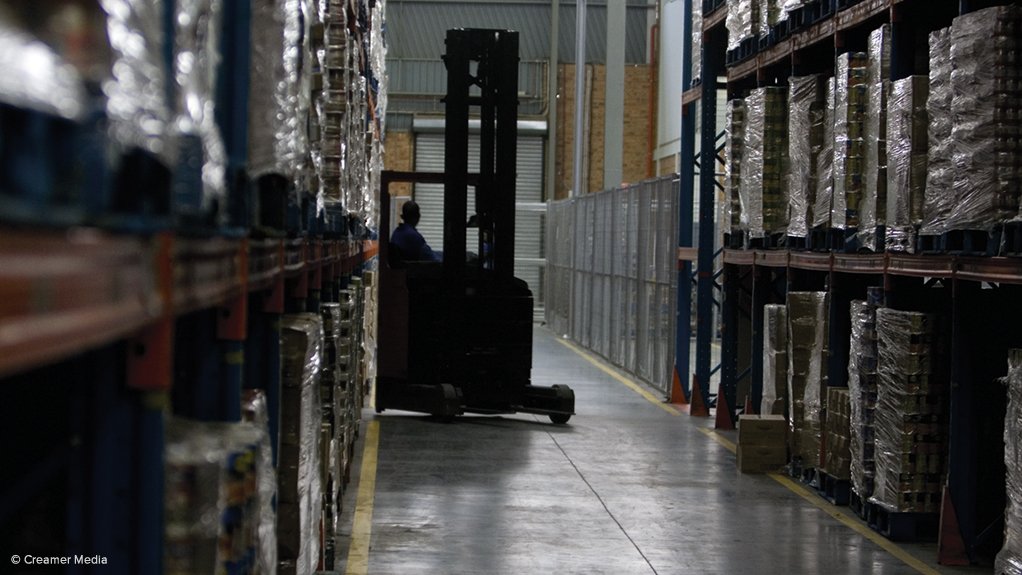Human capital solutions provider Workforce has been receiving a large number of requests from the offloading and warehousing sector, which seems to be a growing market that the company is taking advantage of.
“Offloading and palletising sectors are increasing substantially,” Workforce Africa MD Darren Hollander tells Engineering News.
He explains that, while the ports were not fully operational during earlier stages of the pandemic in South Africa, they are now running at a higher capacity. This has, in turn, increased the flow of goods into South Africa, resulting in increased offloading and palletising. More staff are consequently needed and are being supplied by Workforce.
“We have also found that South African suppliers are shipping in greater quantities of stock to build up stock volumes because they are concerned about the ports closing from Covid-19,” says Hollander, noting that warehousing has been in greater demand across all the major economic centres of South Africa.
Currently, a large portion of Workforce’s temporary employment service (TES), or semi-permanent staff, are made up of code 10 and code 14 drivers within the warehousing and transport sectors.
Hollander says with the logistics sector going into its peak period from August to January, there will definitely be an increase in the need for container offloading, warehousing staff and drivers.
“General assistants, van assistants, code 10 drivers, code 14 drivers, forklift drivers and reach truck drivers are all in demand, owing to the nature of the logistics and materials handling sector, whether it be offloading, packing, checking or driving,” he comments.
Workforce runs various learnerships, through its training provider subsidiary Training Force, for the warehousing sector specifically. Moreover, it has recently introduced a learnership for drivers, with other new training developments taking place regularly for the sector.
“The majority of warehousing facilities are now using top notch information technology equipment, such as tablets for checking and despatch. Knowledge of technology is key for integration into this industry,” Hollander explains.
Workforce has also recently implemented a health and safety induction through training provider subsidiary KBC Health & Safety. The induction is being implemented with Workforce’s TES employees, where upskilling in terms of safety knowledge is top of mind, Hollander says.
Challenging Landscape
These increases have come despite numerous challenges.
“Covid-19 has forced clients to be more mindful of shifts and numbers on shift at any given time. If one employee tests positive they are needing to quarantine an entire shift,” Hollander says, adding that it is in such a situation that Workforce can play an important role by being able to mobilise at short notice.
Moreover, numerous clients of Workforce incurred massive stock losses owing to the riots and looting that broke out in KwaZulu-Natal and parts of Gauteng upon former State President Jacob Zuma’s incarceration last month.
“We are all still trying to gauge exactly what the damage is. However, many of our clients will be back to full capacity by late July,” Hollander states.
He believes that government needs to ensure that this destruction of property does not take place again, owing to the negative impact it has had on investor confidence in South Africa.
Edited by: Zandile Mavuso
Creamer Media Senior Deputy Editor: Features
EMAIL THIS ARTICLE SAVE THIS ARTICLE
ARTICLE ENQUIRY
To subscribe email subscriptions@creamermedia.co.za or click here
To advertise email advertising@creamermedia.co.za or click here













